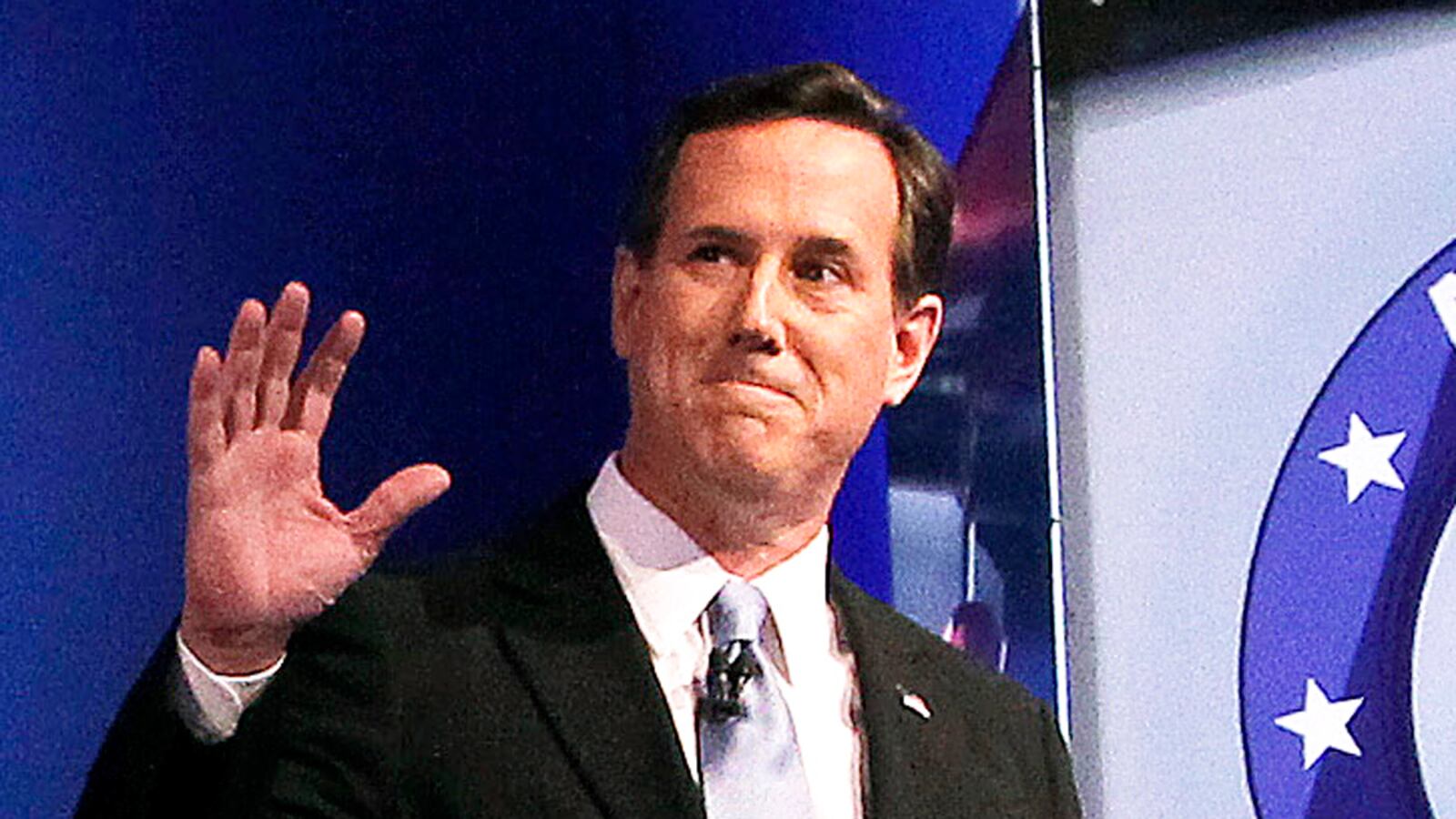Rick Santorum dodged a political bullet on the birth-control controversy at the CNN debate Wednesday night, deflecting criticism from Mitt Romney and batting down the notion that he would discourage contraception.

On a divisive subject that could have complicated his candidacy, Santorum turned the issue back on Romney and battled him to a draw.
If Santorum entered the Arizona debate as the GOP frontrunner, he did nothing to diminish that status. Romney, for his part, also turned in a strong performance. In fact, their frequent exchanges often descended into hard-to-follow squabbling rather than slashing attacks.
The only clear loser was Newt Gingrich, who scored a few points but was largely overshadowed, in sharp contrast to the South Carolina and Florida debates when he loomed so large.
In the end, the debate did little to shake up the race, perhaps because the candidates—seated this time, close to one another—muted their criticism in what was the last such face-off before Super Tuesday. Even moderator John King, famously roughed up by Gingrich in their last encounter, emerged unscathed.
Romney could have used the birth-control question to rip Santorum as an extremist. Instead, he pivoted to denounce President Obama for an “attack on religious conscience,” referring to the dust-up over Catholic organizations being required to offer health plans that include contraception (before the subsequent compromise).
Santorum delivered his most passionate response of the night when asked about having warned of “the dangers of contraception.” His pivot was to the decline in marriage rates and the rise in out-of-wedlock children (though it’s not clear how reduced contraception would do anything but lead to more such children). What “the left” fails to grasp, he declared, is that “just because I’m talking about it doesn’t mean I want a government program to fix it.”
The former senator tried to change the subject by accusing Romney of infringing on Catholics’ rights on such matters as the morning-after pill when Mitt was governor of Massachusetts. Romney, in denying that—he kept meeting with the cardinal!—called Santorum on his own apparent inconsistency, opposing contraception but voting for Title X family-planning programs. That allowed Santorum to say his “personal moral objection” didn’t affect his voting record. Translation: I won’t take away your birth-control pills as president.
A similar time bomb—Santorum’s suggestion that women might be too “emotional” for combat—was defused when Romney muted his criticism and Santorum talked around the issue.
Much of the debate amounted to small ball. The candidates spent substantial time down in the weeds, arguing over the congressional earmark process for what seemed like an interminable period of time. They also waded into the complexity of bailouts, trying to paint each other as inconsistent. Santorum hit Romney for supporting the banking bailout while opposing the Detroit bailout (which Santorum also opposed); Mitt said the financial system was in danger of collapse and said Rick had backed the airline bailout after 9/11, and so on. Romney also cited George W. Bush’s support of the TARP bill, which marks one of the few times any of the candidates has favorably invoked the last Republican president.
There was no killer soundbite, no confrontational exchange that will echo from now to next Tuesday’s Michigan and Arizona primaries. The candidates, clearly worried about going too far, feinted and jabbed but threw no hard punches. And with that, the season’s most popular reality show rang down the curtain, perhaps for the final time.






